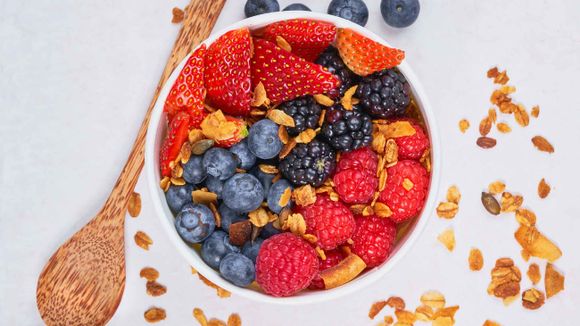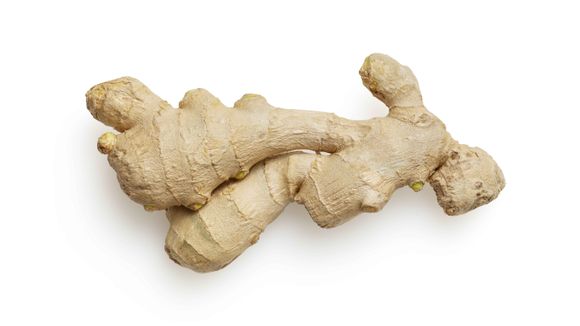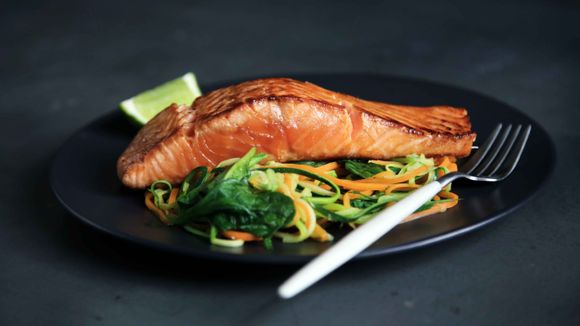What foods cause inflammation in the body?

As you've already learned, inflammation is the body's natural response to injury and infection. But inside the arteries, chronic inflammation promotes atherosclerosis - the accumulation of fatty, cholesterol-rich plaque. Your body perceives this plaque as unusual and alien to it, so it tries to isolate plaque from the blood. But if this wall is demolished, the plaque could burst. The contents then mix with the blood, forming a clot that blocks blood flow. These clots are responsible for most heart attacks and most strokes.
There are also quite a few studies that look at the adverse role of certain foods in relation to inflammatory processes in the body. Some of the foods that have been linked to an increased risk of chronic diseases such as type 2 diabetes and heart disease have also been linked to excessive inflammation. Unhealthy foods also contribute to weight gain, which in itself is a risk factor for inflammation and other health problems. [ref. 1]
What foods cause inflammation? These are the well-known refined carbohydrates, such as white bread and pastries; French fries and other fried foods; soda and other sugar-sweetened beverages; red meat (burgers, steaks) and processed meat (hot dogs, sausages); margarine and lard.
Anti-inflammatory foods for a healthy diet

An anti-inflammatory diet should include the following foods: [ref. 2]
- Olive oil - the main anti-inflammatory effects of olive oil are from antioxidants, one of which is oleocanthal. This antioxidant has been shown to act as ibuprofen, an anti-inflammatory drug. In addition, the antioxidants in olive oil may reduce oxidative damage caused by free radicals, which are thought to be one of the drivers of cancer. [ref. 3]
- Avocado - primarily rich in healthy fats (monounsaturated "good" fats) - those that help reduce cholesterol and soothe inflammation of the joints. Avocados are also high in vitamin K, vitamin C, vitamin E, manganese, selenium and zinc.
- Green leafy vegetables, such as spinach, cabbage and kale, mangold, arugula, dandelion and other leafy vegetables - rich in antioxidants and alkalize the body. They are packed with vitamins and nutrients, including folate, fiber, vitamins A, vitamin C, vitamin E, and vitamin K, along with a variety of minerals.
- Nuts such as almonds and walnuts Among all nuts, walnuts are the richest source of omega-3 fatty acids, especially alpha-linolenic acid, which is known for its anti-inflammatory properties. Walnuts have also been found to lower bad cholesterol while improving metabolism and heart function. [ref. 4]
- Oily fish, such as salmon, mackerel, tuna, and sardines an excellent source of omega-3 fatty acids has been linked to numerous health benefits, including a reduced risk of heart disease, arthritis treatment, and other inflammatory conditions.
- Fruits, such as strawberries, blueberries, cherries, and oranges Fruits, whether blueberries, strawberries, raspberries, or blackberries all contain antioxidants known as anthocyanins. In fact, the presence of anthocyanins gives the fruits their vibrant red, blue and purple color. Although all fruits are usually high in antioxidants, berries are superstars with chemical compounds that deal with inflammation, cancer and cardiovascular disease. Berries not only reduce existing inflammation, but also train our cells to better respond to any cases of future inflammation.
- Garlic (A. sativum) - garlic has been used for centuries for its healing properties, and studies have shown that it has both a preventive action against cancer and a strengthening of the immune system. It is a natural anti-inflammatory, antifungal and antiviral agent.
- Ginger (Zingiber officinale) - ginger, like garlic, has been used for centuries all over the world for its healing properties. It is well known to relieve nausea and help with fainting and pain. Ginger contains substances known as gingerols that reduce inflammation and exclude pain-causing compounds in the body. In terms of digestion, ginger helps and promotes peristalsis.










